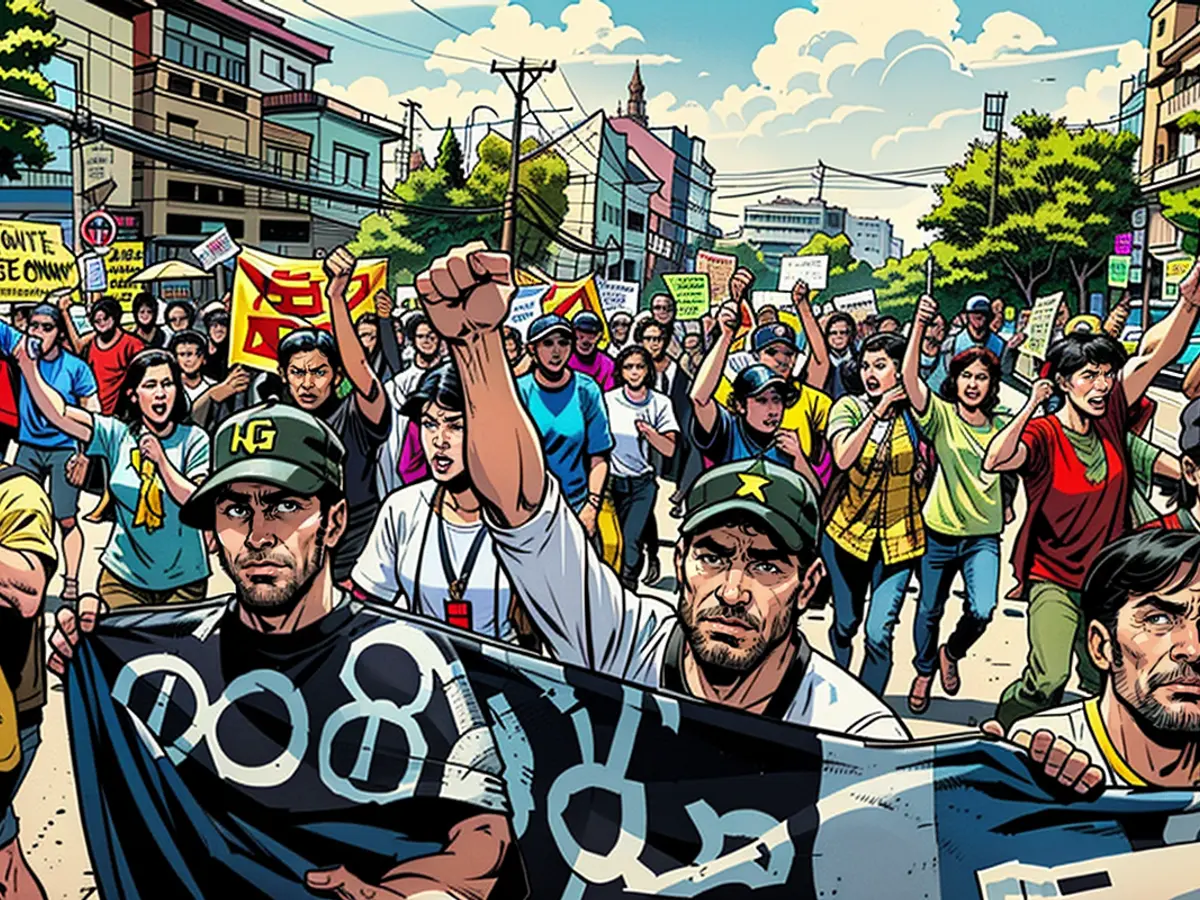The recent study reveals that this nation's internet liberties have deteriorated to a level equivalent to China's restrictive online environment.
A recent report revealed that internet liberties in China's neighbor, Myanmar, are now as lacking as they are in China itself. This report, published by Freedom House, a U.S.-backed NGO, indicated a 14th consecutive annual decrease in global internet freedom. Both countries scored a dismal nine out of 100, making them the worst performers in 2024.
Since seizing power through a 2021 coup, Myanmar's military regime has aggressively suppressed dissent. This includes imposing online access and speech restrictions and widespread internet shutdowns. The regime also constructed a comprehensive mass surveillance and censorship apparatus, according to the authors of "Freedom on the Net 2024: The Struggle for Trust Online."
The report emphasizes the implementation of censorship technology in May, which blockaded most virtual private networks (VPNs), effectively cutting off residents' access to tools they relied on to circumvent internet restrictions.
Myanmar's suppression of internet freedoms aimed to stifle the activities of pro-democracy civilians and armed resistance groups, the report stated.
Various human rights organizations and UN experts have corroborated these claims. In 2022, the UN's special rapporteur for human rights in Myanmar urged that the junta was constructing a "digital dictatorship" to limit online liberties and intensify surveillance on civilians.
The UN report determined that online access was a matter of life and death for many in Myanmar, particularly for individuals seeking refuge from indiscriminate military attacks and the millions navigating a devastating economic and humanitarian crisis.
On the other hand, the Freedom House report revealed that China's government has continued its endeavor to segregate China's domestic internet from the global network, hindering international traffic to certain government websites and imposing hefty fines on VPN users.
China's internet regulatory body has escalated control over cyberspace, intensifying a crackdown on online dissent in recent years. China's censors have curtailed blogs, U.S. search giants, social media platforms, and even regulated the "likes" on public posts.
In response to the report, China's Ministry of Foreign Affairs asserted that Chinese citizens enjoy all rights and freedoms according to the law. The ministry accused the report of being "completely false" and harboring ulterior motives.
The report painted a bleak picture of internet freedom worldwide, with deteriorating online human rights conditions in 27 out of 72 surveyed countries. Nearly 80% of the population resides in countries where individuals have been incarcerated for sharing their political, social, or religious views online.
In 43 countries, people endured physical assaults or were murdered in retaliation for their online activities, according to the report. Thailand's stringent royal insult laws, which have apprehended numerous individuals over the past few years, including one man given a record 50-year prison sentence for social media posts damaging to the king, serve as an example.
Kyrgyzstan experienced the most significant drop in internet freedoms, with President Sadyr Japarov intensifying efforts to silence digital media and suppress online organizing, according to the report. Kyrgyz authorities prevented and later shut down investigative media website Kloop after it disclosed allegations of torture in detention by an imprisoned opposition figure.
Meanwhile, Iceland preserved its title as the environment with the "most free" online access, scoring 94 out of 100.
The report also addressed online disinformation campaigns and political interference in the run-up to elections, including harassment of independent researchers and fact-checkers. In the United States, such pressure on experts has left citizens less informed about influence operations preceding the November elections, the report stated.
False accusations against such researchers resulted in a wave of litigation, subpoenas from top Republican leaders on the U.S. House of Representatives' Judiciary Committee, and online harassment aimed at the affected participants, affecting their work with a "chilling effect," the report concluded.
The suppression of internet freedoms in Myanmar and China has raised concerns in the international community. Asia, specifically Myanmar and China, are two regions where the World Wide Web is heavily censored and restricted.







